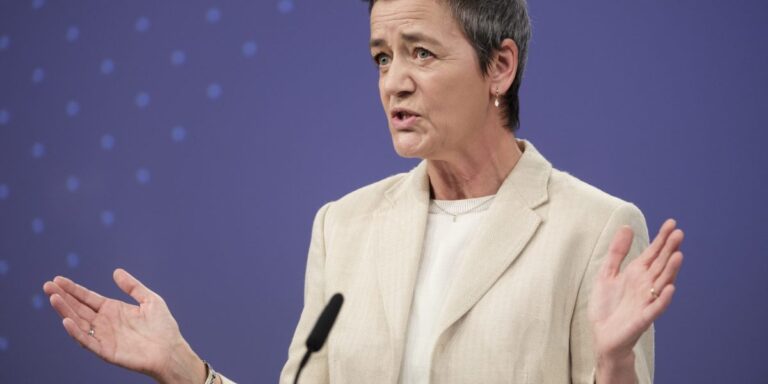European Union Competition Commissioner Margrethe Vestager warned of a “huge bottleneck” in the supply of Nvidia Corp.’s AI chips, but said watchdogs were still deciding what, if anything, to do about it.
“We have asked them questions, but this is just the beginning,” she told Bloomberg during a trip to Singapore. For now, it does not “meet the criteria of a regulatory measure.”
Nvidia has drawn scrutiny from regulators since it became the biggest beneficiary of the surge in spending on artificial intelligence. Its graphics processing units, or GPUs, are prized by data center operators for their ability to process the massive amounts of information needed to develop AI models.
Chips have become one of the hottest commodities in the tech world, and cloud computing providers are competing for access to them. Nvidia’s in-demand H100 processors have helped them gain an estimated 80% market share, ahead of rivals Intel Corp. and Advanced Micro Devices Inc.
Despite the supply crisis, Margrethe Vestager said secondary markets in the supply of AI chips could help drive innovation and fair competition.
But she said dominant companies could face some restrictions on their behavior in the future.
“If you have such a dominant market position, there are things you can’t do that a small company can do,” she said. “But other than that, as long as you do your business and you respect it, you’re fine.”


